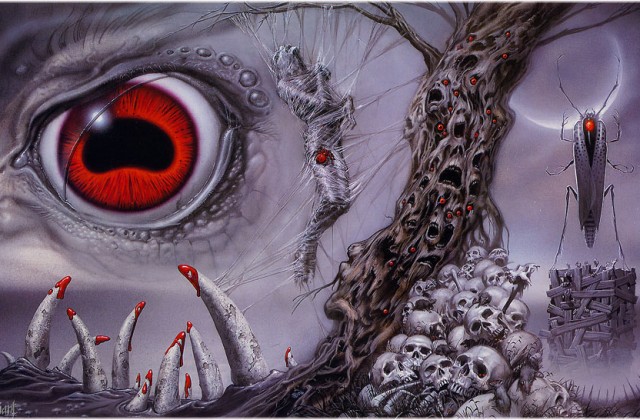Events
Exploring the Fusion: Crash Games as Art in a Contemporary Gallery
Picture this: a gallery pulsating with the energy of F777 Fighter, the cosmic allure of Space XY, and the adrenaline rush of Need for X. Can crash games be more than just pixels on a screen? Can they transcend the digital realm and materialize as captivating art installations in a contemporary gallery space? Let’s dive into the exciting realm of possibilities.
Crash games, with their dynamic visuals and interactive nature, possess the potential to become immersive art experiences. Imagine F777 Fighter translated into a kinetic sculpture, where the crashes manifest as explosive bursts of color and sound, echoing the intensity of the digital game.
Space XY, with its cosmic theme, could transform a gallery into an otherworldly environment. Picture visitors navigating through a celestial landscape, interacting with installations that mirror the unpredictability of the crash game, creating an unforgettable sensory experience.
Need for X, known for its high-speed thrills, might find its material form as a multi-dimensional installation. Visitors could step into a space where the speed and crashes are tangible, blurring the lines between virtual and physical realities.
- Interactive Exhibits: Allow gallery-goers to engage with the crash game experience physically, triggering crashes and exploring the consequences in real-time.
- Visual Spectacle: Harness the vivid graphics and themes of these games to create visually stunning installations that captivate and challenge perceptions.
- Soundscapes: Consider incorporating dynamic sound elements that respond to the crashes, enhancing the immersive quality of the installations.
In the fusion of crash games and contemporary art, the possibilities are as boundless as the digital landscapes they draw inspiration from. The challenge lies in translating the essence of these games into tangible, material forms that captivate and resonate with gallery visitors. Could crash games be the next frontier in pushing the boundaries of what we perceive as art? The journey into this uncharted territory is as thrilling as the crash itself.
Event Information:
-
Tue04Feb2014Tue04Mar2014
HP Lovecraft: From Cosmic Horror to Heavy Metal
Miskatonic Institute of Horror Studies, Montreal, CanadaTuesdays, February 4th & February 11th, 18th, 25th and March 4th (5 weeks) $35 ADMISSION
Miskatonic Institute of Horror Studies, Montreal
Details at www.miskatonicinstitute.comHorror fiction writer, theorist, philosopher, and prolific epistolarian, H.P. Lovecraft is one of the most important American authors of the 20th century. Lovecraft was a mentor to major horror writers such as Robert Bloch and Ray Bradbury. His work has inspired everything from film festivals, to board games, to the ancient alien theories popularized by TV shows like In Search of …. Over this five-week course, various instructors will lecture on key aspects of Lovecraft’s work and influence, including his influence on heavy metal music, his connections to theology, his inspiration from and influence on pseudo-science, his importance to 20th century horror literature, television, cinema, music and gaming, and his influence on major authors of the “Weird,” like Peter Straub, Stephen King, China Miéville, Thomas Ligotti, Joyce Carol Oates, Kathe Koja and Caitlín Kiernan.
Individual Classes and Instructors Readings for all classes can be found at the H.P. Lovecraft Library page at H.P.Lovecraft.com: http://www.hplovecraft.com/writings/texts/
4 February: Shedding the Gothic, Theorizing the Weird: H.P. Lovecraft’s Mid- to Late-Period Works (Instructor: Kristopher Woofter) Reading for the Class: “The Colour Out of Space” (1927)
11 February: Religious Awe and Otherness in the Early Works of H.P. Lovecraft (Instructor: Mario DeGiglio-Bellemare) Reading for the Class: “Dagon” (1917) & “The Shunned House” (1924)
18 February: H.P. Lovecraft’s Influence on Heavy Metal Music (Guest Instructor: Carl Sederholm, Brigham Young University) Reading for the Class: Edgar Allan Poe’s “Facts in the Case of M. Valdemar” (1845) & H.P. Lovecraft’s “The Statement of Randolph Carter” (1920) and “The Dunwich Horror” (1929)
25 February: Pseudo-archaeology and the Lovecraftian Narrative (Guest Instructor: Michael Wood, with K. Woofter) Reading for the Class: “The Nameless City” (1921)
4 March: Screening and Discussion, film TBA




Steve Smith commented on THE BIG BANG: The too-short career of actress JOY BANG
As I type this, I'm watching "Messiah of Evil"...
Hyacinth commented on THE BIG BANG: The too-short career of actress JOY BANG
I'd be interested in her Hollywood memoir. ...